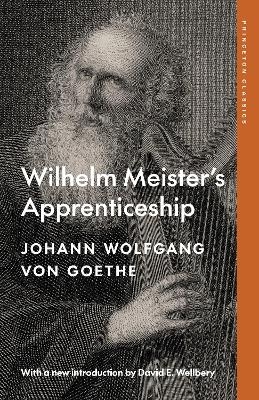
Wilhelm Meister's Apprenticeship
Seiten
2024
Princeton University Press (Verlag)
978-0-691-25914-7 (ISBN)
Princeton University Press (Verlag)
978-0-691-25914-7 (ISBN)
An authoritative English translation of one of the most important works in the history of the novel
Wilhelm Meister’s Apprenticeship (1795–1796), Goethe’s second novel, is a foundational work in the history of the genre—perhaps the first Bildungsroman, a coming-of-age story focusing on the growth and self-realization of the main character. The story centers on Wilhelm, a young man living in the mid-1700s who strives to break free from the restrictive bourgeois world of his upbringing and seek fulfillment as an actor and playwright. Goethe’s novel had a huge impact on the Romantics. Hegel, Schelling, Novalis, and Schopenhauer considered it one of the most important novels yet written. Schlegel famously called it one of the “three tendencies of the age,” along with the French Revolution and the philosophy of Fichte. And Beethoven, Schubert, and Schumann set poems from the novel to music. It also had a major influence on nineteenth-century British writers, including Thomas Carlyle, who was its first English translator, and George Eliot. Drawn from Princeton’s authoritative collected works of Goethe, and featuring a new introduction by David Wellbery, this is the definitive English version of a landmark of world literature.
Wilhelm Meister’s Apprenticeship (1795–1796), Goethe’s second novel, is a foundational work in the history of the genre—perhaps the first Bildungsroman, a coming-of-age story focusing on the growth and self-realization of the main character. The story centers on Wilhelm, a young man living in the mid-1700s who strives to break free from the restrictive bourgeois world of his upbringing and seek fulfillment as an actor and playwright. Goethe’s novel had a huge impact on the Romantics. Hegel, Schelling, Novalis, and Schopenhauer considered it one of the most important novels yet written. Schlegel famously called it one of the “three tendencies of the age,” along with the French Revolution and the philosophy of Fichte. And Beethoven, Schubert, and Schumann set poems from the novel to music. It also had a major influence on nineteenth-century British writers, including Thomas Carlyle, who was its first English translator, and George Eliot. Drawn from Princeton’s authoritative collected works of Goethe, and featuring a new introduction by David Wellbery, this is the definitive English version of a landmark of world literature.
Johann Wolfgang von Goethe (1749–1832) was one of the greatest artists of the German Romantic period. He was a poet, playwright, novelist, and natural philosopher. David E. Wellbery is the LeRoy T. and Margaret Deffenbaugh Carlson University Professor in the Department of Germanic Studies and the Committee on Social Thought at the University of Chicago.
| Erscheinungsdatum | 05.06.2024 |
|---|---|
| Reihe/Serie | Princeton Classics |
| Einführung | David E. Wellbery |
| Übersetzer | Eric A. Blackall, Victor Lange |
| Verlagsort | New Jersey |
| Sprache | englisch |
| Maße | 140 x 216 mm |
| Themenwelt | Literatur ► Historische Romane |
| Literatur ► Klassiker / Moderne Klassiker | |
| ISBN-10 | 0-691-25914-3 / 0691259143 |
| ISBN-13 | 978-0-691-25914-7 / 9780691259147 |
| Zustand | Neuware |
| Informationen gemäß Produktsicherheitsverordnung (GPSR) | |
| Haben Sie eine Frage zum Produkt? |
Mehr entdecken
aus dem Bereich
aus dem Bereich


